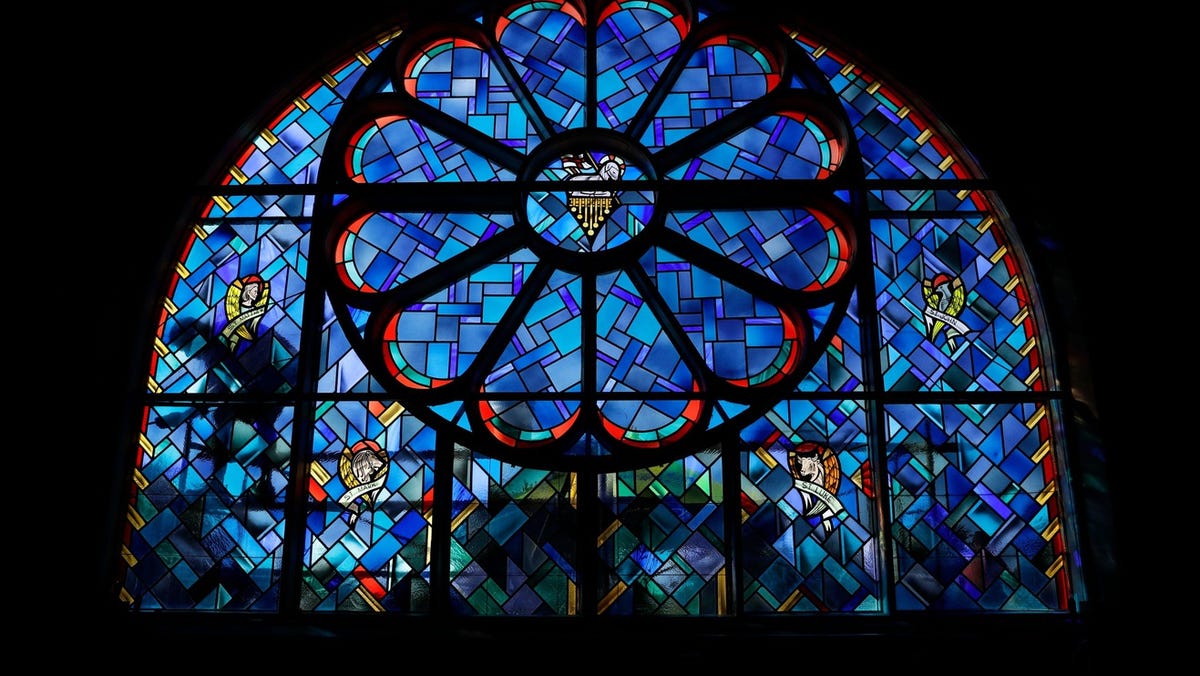SCOTUS takes up case on LGBTQ+, inclusive books in schools
Demonstrators on both sides protested as the Supreme Court heard a school district’s case on parents’ rights and LGBTQ+ books.
WASHINGTON − A major test of the separation of church and state is before the Supreme Court on Wednesday as the justices debate whether to allow the Catholic Church in Oklahoma to run the nation’s first religious charter school.
The U.S. Constitution prohibits the government from establishing a religion but also says the government cannot prohibit people from freely exercising religion.
In some recent cases where those portions of the Constitution have been in tension, the Supreme Court came down on the side of protecting religious exercise, expanding the role of religion in public life.
A similar decision in the case from Oklahoma could greatly increase the use of taxpayer money for religious education.
Follow along for updates from the debate.
Not the only religious rights case before the court
The case is one of three that could make this a blockbuster term of religious rights.
The court is also deciding whether parents with religious objections can request that their children be excused from class when books with LGBTQ+ characters are being used. And they’re deciding whether a Wisconsin Catholic charitable organization should be exempt from state unemployment taxes.
During both oral arguments, the court appeared likely to side with the religious groups.
–Maureen Groppe
The Catholic Church says religious charter schools are the logical next step following a trio of rulings since 2017 that allowed taxpayer funds to flow to religious organizations when a program is generally available to others.
In 2022, the court said Maine couldn’t exclude religious schools from an indirect aid program based on the schools’ religious use of the funds.
In 2020, the court said a Montana scholarship program could not exclude religious schools if the program was open to any private schools.
In 2017, the court backed a church preschool’s challenge to its exclusion from a Missouri grant program to resurface playgrounds.
–Maureen Groppe
Justice Amy Coney Barrett is not participating in the oral arguments.
Although she didn’t give a reason for her recusal, Barrett is close friends with the Notre Dame Law School professor who was an early legal adviser to the Catholic Church in Oklahoma.
Her absence means the court could deadlock 4-4 on a decision. If they do, that would leave in place the Oklahoma Supreme Court’s decision that religious charter schools are not allowed.
–Maureen Groppe
The court’s decision is expected to turn on whether charter schools – which are publicly funded but have private operators – are public schools under the law.
If they are, religious charter schools could violate the Constitution’s prohibition on the government backing a religion.
If they’re not, prohibiting the church from participating in the state’s charter school program could be discrimination under the Constitution’s promise that Americans can practice religion freely.
–Maureen Groppe
The Catholic education that the church wants to offer Oklahoma children through the state’s public charter school program is likelyfamiliar to the justices.
Seven were raised Catholic. Six are still practicing Catholics And six went to Catholic schools.
That might give extra weight to one of the church’s arguments for why the justices should allow them to run a charter school. They argue that Oklahoma’s insistence that public schools be “free from sectarian control,” stems from a 19th-century movement that led to multiple states blocking religious schools from receiving taxpayer dollars. The movement was spurred by prejudice against immigrants, particularly Catholic immigrants, they say.
Oklahoma Attorney General Gentner Drummond, however, has countered that the state’s constitution can’t be smeared with that stain.
–Maureen Groppe
